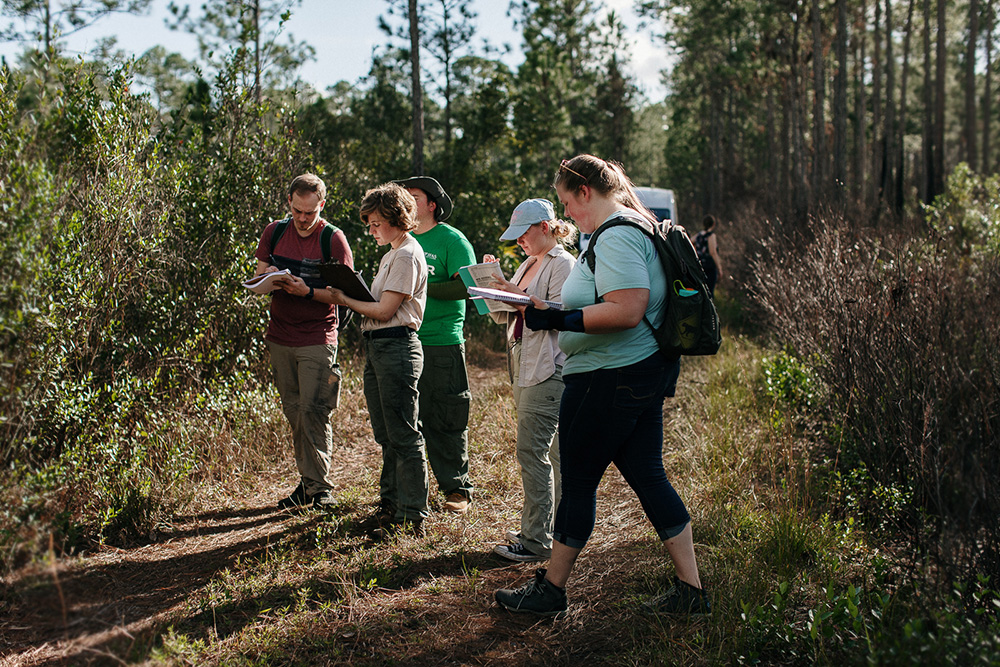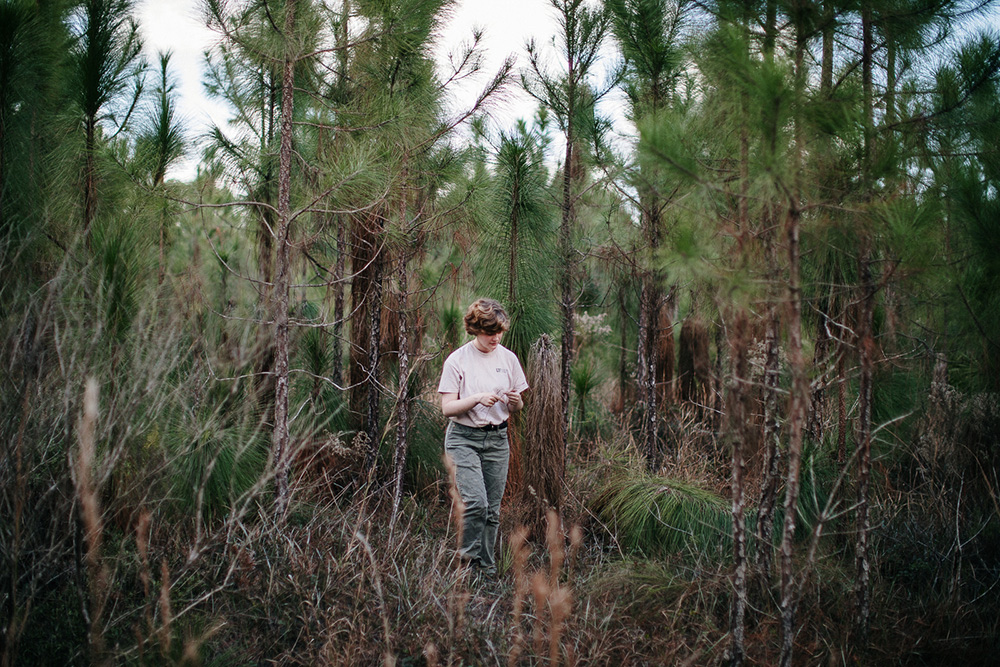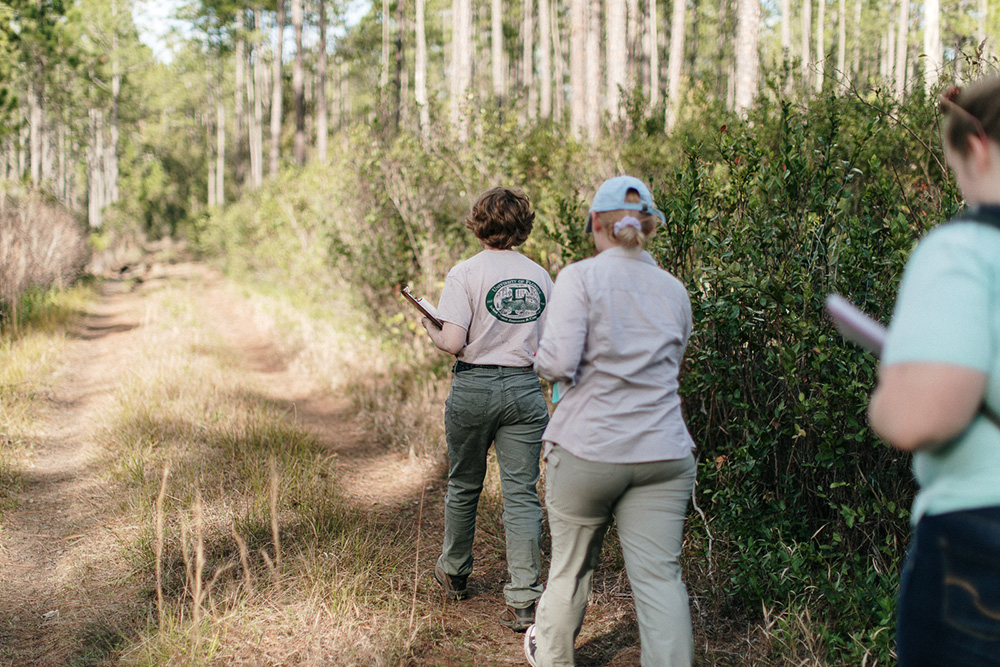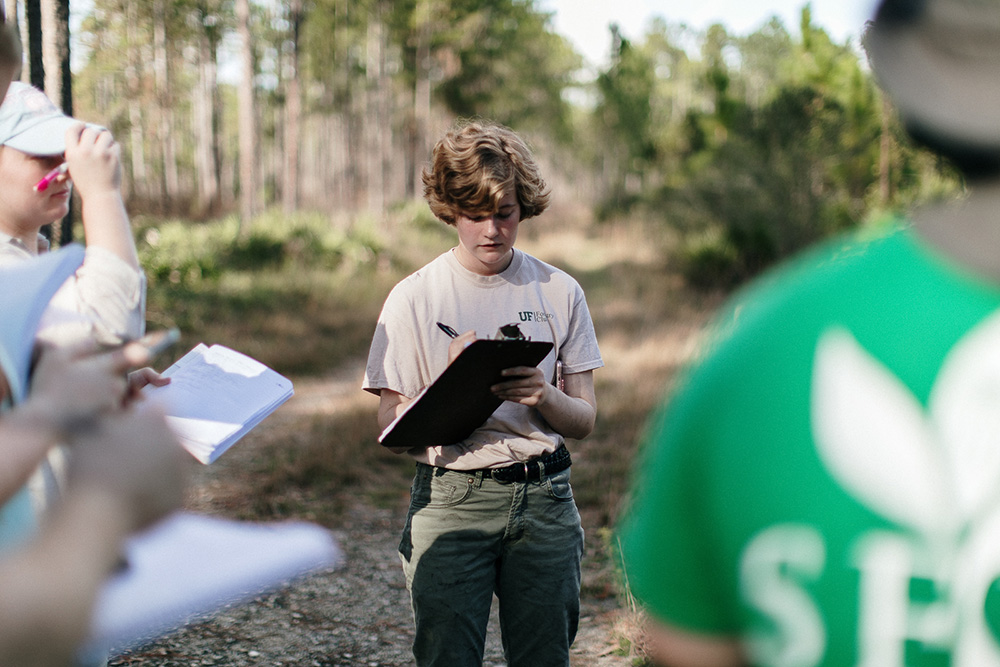Olivia Johnson says more women and minorities are enrolling in forestry programs, bringing a new level of workforce diversity that will enrich the industry in the years to come.
GAINESVILLE, Florida—Olivia Johnson is in her element as she leads a team of students through the forest.
“This area would be perfect for recreation,” she says, gesturing to a sunny stand of trees. The students nod in agreement as they continue walking through Austin Cary Forest, University of Florida’s official teaching and research forest. Their assignment: to come up with a business plan for a pretend landowner, figuring out how to get the most value from a 95-acre section of the forest.
“I love tromping through the woods. I can’t believe you can just do this as a major,” says Olivia, a fourth-year student who is finishing her bachelor’s and working on her master’s this semester.

A Love for the Forest
Olivia, who recently received the first-ever Rayonier Scholarship to Support Diversity and Inclusion in Operational Forestry, says she never feels more at home than when she’s in the forest.
“My family moved from the mountains of North Carolina to Key West, and I missed the forest,” she says. “I volunteered at Key West’s botanical gardens, and that’s the one place that felt right.”

Olivia enrolled in the UF/IFAS School of Forest Resources & Conservation expecting to go into a conservation career, or perhaps to work at a national park. But then she fell in love with something unexpected: operational forestry.
“I love going through the woods of course, but I also love the math part of it,” she says. “I love taking what I see and making sense of it. I love figuring out, just from the height and diameter, how much a stand is worth.”
She says operational forestry is a perfect “win-win” because a forester can determine ways to enhance the value of the property while also maintaining sustainable practices and protecting the ecosystem that depends on the forest.
Workforce Diversity in Forestry “Is Already Here”
In the past, college-level forestry programs throughout the U.S. have struggled to attract women and minorities. Asked if she expects to see more diversity in the forestry profession in the future, Olivia says, “It’s already happening. In my forestry department, there are so many people of different backgrounds.
“Everyone respects each other. I’ve never felt like I was treated any differently than anyone else in the program,” she says. “My advice to anyone considering forestry is that it shouldn’t be a barrier. There are more and more of us going into natural resources fields.”
She says the rich array of perspectives will benefit the forestry profession as it becomes more diverse in the years to come.

Entering into Forestry Research
Determined to work her way through college, Olivia has been using a job at Gainesville’s Kanapaha Gardens to cover her tuition. But she’s become passionate about genetic research in forestry and wanted to find work that would give her experience in that field.
“The scholarship from Rayonier helped a lot. It’s paying for this next semester of college, which is allowing me to pursue forest genetics,” she says.

The financial support allowed Olivia to take a position as a research assistant for the Cooperative Forest Genetics Research Program that UF manages. Ironically, as a member of the coop, Rayonier will benefit from the work she does.
Olivia says she’s looking forward to working full-time in the industry after she graduates next year.
“I love that you can just be outside and make money at it,” she says. “It’s such a fun profession and it’s really cool.”









Join the Conversation
It is so nice to see a young generation with the passion for the industry we all love. Olivia, we all wish you nothing but the best.